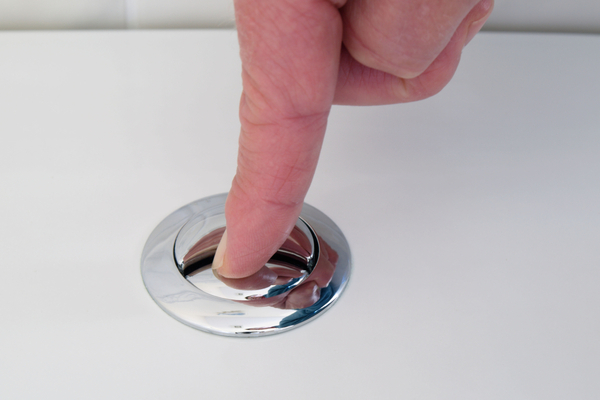Lynne Sullivan OBE, chair, Good Homes Alliance
In 2013, as a founder member of the Green Construction Board (then an independent advisory committee to UK government on sustainability in the built environment co-chaired by the BEIS Minister) I and colleagues commissioned a Low Carbon Routemap for our sector.
We believed this was essential to inform our work programme: to compare actual business-as-usual emissions from the built environment against the then target of 80% carbon reduction by 2050. Even then, with key elements such as capital carbon of infrastructure excluded, it was clear from the modelling that more urgency must be brought to bear, particularly on reduction of operational emissions from heating, since maintaining BAU and even the median ‘central’ scenario of interventions got us nowhere near where we needed to be to satisfy the UK Climate Change Act. Eight years on, the UK Green Building Council has produced a follow-up updated built environment Net Zero model (funded by the Laudes Foundation) - as part of a global network of Green Building Councils’ routemaps to be showcased at COP26 - and I represent Green Construction Board, now part of CLC, as well as the Good Homes Alliance on the project Steering Group.
To achieve 78% reduction in built environment emissions by 2035, in line with the CCC 6th Budget for Net Zero by 2050, is now an even greater challenge given little or no relevant buildings regulation since 2013, and the dropping of the ‘Zero Carbon Homes’ target in 2015. UKGBC and industry partners have been working very hard to draw together much good work achieved in our sector – driven by those who acknowledge the urgency of decarbonising notwithstanding the lack of regulation. The model sets out with great clarity where we need to make up ground. In retrofit, for example, it is simply inadequate to approximate buildings emissions using EPC ratings – so inputs are based on real energy use from examples of energy reduction through packaged measures and decarbonised fuel technologies, and verified outcomes. For newbuild homes, inputting 75% reduction in CO2 ratings over current regulated ‘target’ emissions cannot secure an adequate rate of decarbonisation for the modelled budget – so the Future Homes Standard @ 2025 is inputted in the form of kWh/m2 total energy used at the meter based on case studies deploying Passivhaus fabric standards, LETI energy use intensities for Net Zero, and verified performance through contractual targets and rigorous quality control. It is an inescapable fact that allowing current levels of operational performance gap and the inaccuracy of current regulatory compliance does not add up to net-zero readiness in homes – and the model lays this bare.
At Good Homes Alliance we have anticipated the cultural and technological changes which are a prerequisite of delivering newbuild and retrofit projects fit for purpose to address the eye-watering challenges which climate change presents. The IPCC latest report on global climate impacts paints a devastating picture of the consequences of global ignorance, complacency and rapaciousness, and our GHA membership is united in the commitment to act to mitigate forthcoming deterioration in our climate conditions and build in a way which regenerates if at all possible.
The Good Homes Alliance has a growing network of developer members from across industry, including over 25 progressive Local Authorities and Housing Associations who are striving to build to higher sustainability and quality standards, and are set to build 125,000 new homes over the next 10 years. Therefore our current programme looks at enabling low energy fabric and systems to be deployed at scale through showcasing examples of built projects, quality assured build techniques, procurement for energy performance and specifications for capital carbon reduction and circular principles – the ‘how’ of Net Zero, with contributions from our cross-sectoral membership. We recognise that to achieve the precise impacts demanded by the modelled trajectory, current paradigms need to become the norm – and also must be achieved in projects which building users and occupiers can enjoy. We have a long-established track record in research in performance in-use and comfort in homes and are expanding our programme of overheating mitigation guidance for newbuild and retrofit, as well as showcasing green space and habitat creation projects, water management and re-use, and projects which prioritise connectivity and decarbonisation of transport as a prerequisite of sustainable communities.
One of GHA’s most recent programmes has been the Build Net Zero NOW campaign, which launched at our A Net Zero Recovery online conference series last November and ran throughout 2021 with a series of events exploring net zero housing and topics such as modern methods of construction (MMC) and embodied carbon. The final campaign event takes place online on Tuesday 14th September on Net Zero and Green Finance, before we reflect on the campaign’s outputs at our 2021 annual conference with two online events: firstly The Big Net Zero Debate (5th October, 1-3pm) will feature industry experts posing the key questions regarding the challenges for delivery of net zero housing, including policy, planning, procurement, design and building performance. Then Net Zero Housing Action (19th October, 1-3pm) will showcase the forward-thinking work of our members and wider industry in delivering net zero homes, including the launch of a series of Net Zero Housing case studies that we have been developing thanks to funding from MCS Charitable Foundation.
The legacy of the Build Net Zero NOW campaign is a framework of Net Zero themes, with associated metrics and we plan to coordinate a database of linked examples of delivery where performance is verified and user and occupant feedback is recorded. Since 2007, Good Homes Alliance has consistently attracted members who seek to go beyond ‘business as usual’ and deliver homes good for people and planet - no longer a niche concern!
Lynne Sullivan OBE, Chair, Good Homes Alliance



